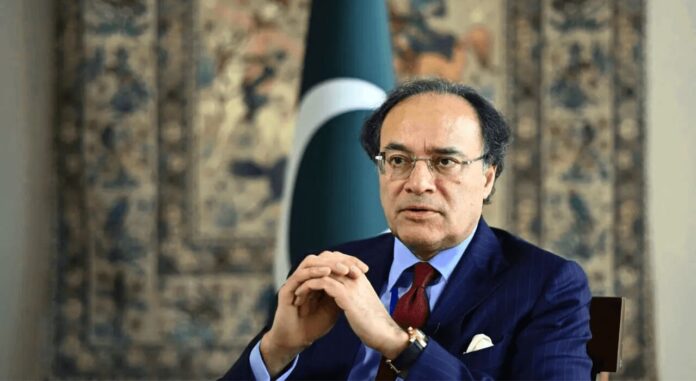ISLAMABAD: Federal Minister for Finance and Revenue Senator Muhammad Aurangzeb on Friday said that during the fourth wave, five ministries including Communications, Railways, Poverty Alleviation and Social Safety, Revenue Division, Petroleum Division and their attached departments would be examined for rightsizing, as per the committee’s mandate.
He made this announcement while chairing a meeting of the Committee on Rightsizing the Federal Government (Wave-IV), a news release said.
Among others, the meeting was attended by Minister for Communications, Abdul Aleem Khan, Members of the National Assembly and federal secretaries of the relevant ministries and divisions.
At the outset, the Finance Minister highlighted and appreciated what he called a “whole of government” approach adopted by the ministries and their in-charge ministers for successfully completing the first three waves of the rightsizing exercise. This initiative aims to examine 43 ministries and nearly 400 attached departments of the federal government before the end of the financial year.
Aurangzeb said the implementation of the decisions taken by the committee and subsequently endorsed by the Federal Cabinet so far would be followed up by the sub-committee of the Rightsizing Committee, with the main body intervening only in matters requiring escalation.
During the subsequent proceedings, the Ministry of Communications gave a detailed presentation to the Cabinet body on the functions, organizational structure, and possibilities of semi-privatization and PPP models for various projects and initiatives of the ministry.
The committee was informed that, in the spirit of rightsizing, the Ministry of Communications had already abolished all redundant posts.
Minister for Communications Abdul Aleem Khan also provided a perspective on the core functions of the ministry and how its departments, particularly the National Highway Authority (NHA), could be made profitable.
He suggested that the NHA could become a major revenue generator for the government if its resources were redirected toward the construction of revenue-based motorways, such as the M-6, which links Sukkur to Karachi port.




